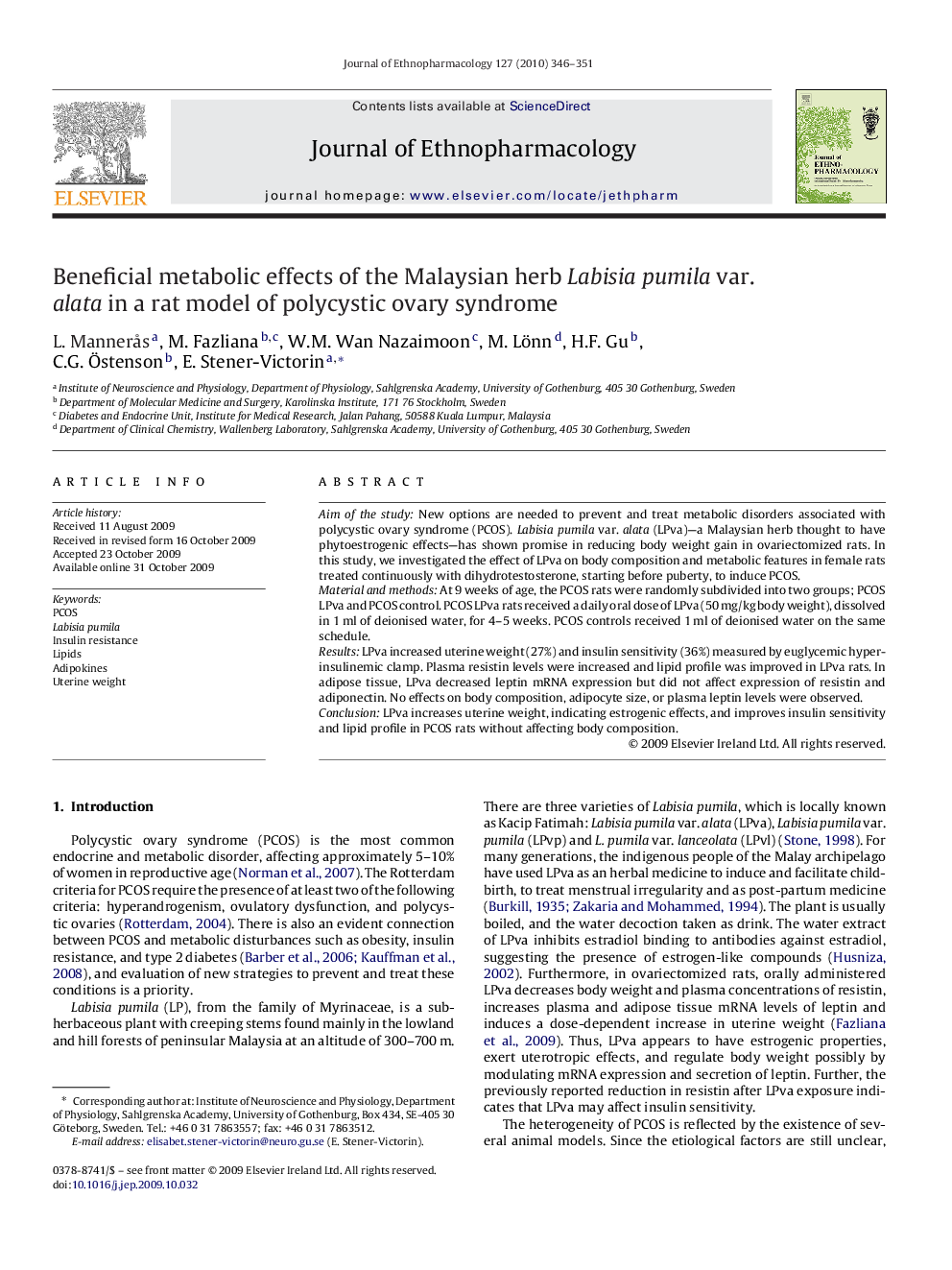| Article ID | Journal | Published Year | Pages | File Type |
|---|---|---|---|---|
| 2545901 | Journal of Ethnopharmacology | 2010 | 6 Pages |
Aim of the studyNew options are needed to prevent and treat metabolic disorders associated with polycystic ovary syndrome (PCOS). Labisia pumila var. alata (LPva)—a Malaysian herb thought to have phytoestrogenic effects—has shown promise in reducing body weight gain in ovariectomized rats. In this study, we investigated the effect of LPva on body composition and metabolic features in female rats treated continuously with dihydrotestosterone, starting before puberty, to induce PCOS.Material and methodsAt 9 weeks of age, the PCOS rats were randomly subdivided into two groups; PCOS LPva and PCOS control. PCOS LPva rats received a daily oral dose of LPva (50 mg/kg body weight), dissolved in 1 ml of deionised water, for 4–5 weeks. PCOS controls received 1 ml of deionised water on the same schedule.ResultsLPva increased uterine weight (27%) and insulin sensitivity (36%) measured by euglycemic hyperinsulinemic clamp. Plasma resistin levels were increased and lipid profile was improved in LPva rats. In adipose tissue, LPva decreased leptin mRNA expression but did not affect expression of resistin and adiponectin. No effects on body composition, adipocyte size, or plasma leptin levels were observed.ConclusionLPva increases uterine weight, indicating estrogenic effects, and improves insulin sensitivity and lipid profile in PCOS rats without affecting body composition.
Graphical abstractLabisia pumila var. alata (LPva)—a Malaysian herb—was shown to induce beneficial metabolic effects in female rats treated continuously with dihydrotestosterone.Figure optionsDownload full-size imageDownload as PowerPoint slide
